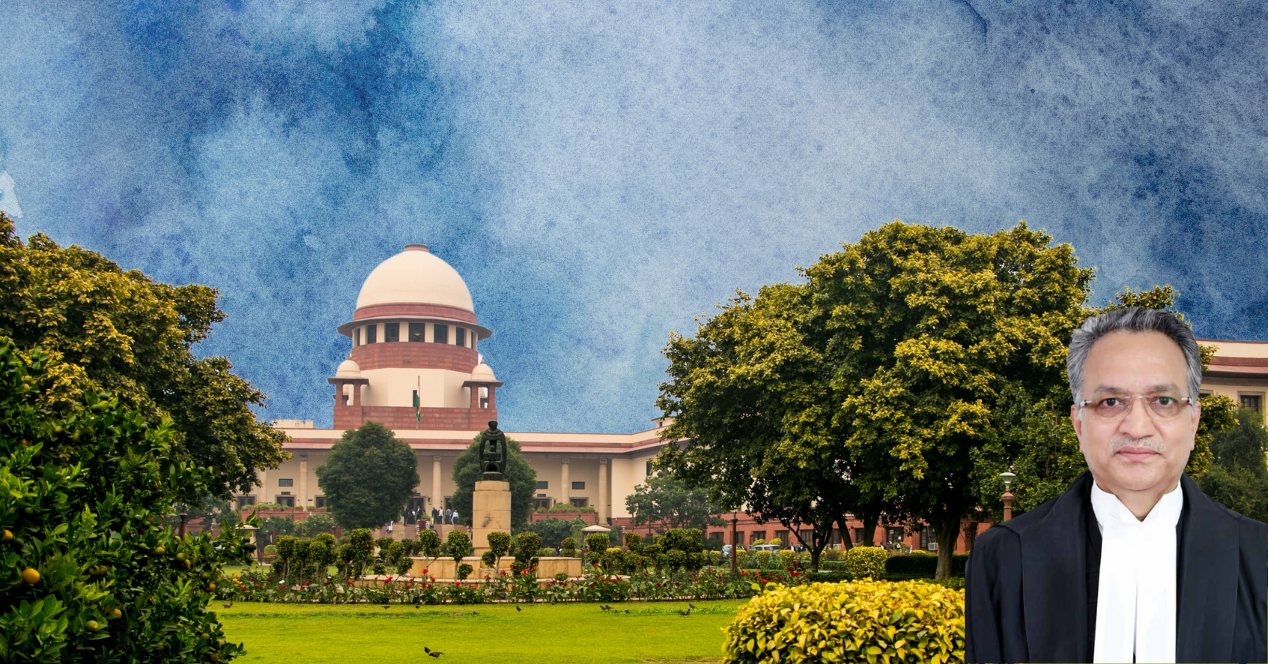Analysis
Looking Ahead: The Court in July 2022
The Court is set to hear a slew of important cases in July 2022—will citizens be able to tune in?
As the Supreme Court (SC) prepares to return from its 6 weeks long summer vacation on July 11th 2022, the stage is set for significant developments.
July will be Chief Justice N.V. Ramana’s second to last month at the SC—he is due to retire on August 26th, 2022. During his COVID-afflicted tenure, he led the Court’s E-Committee in developing an online hearings system. The next step, according to sources from the Court, will be the launch of the Court’s live streaming platform. Many High Courts have started live streaming hearings, in keeping with the SC’s directives in Swapnil Tripathi (2018). The SC itself has been slow to join the club. With CJI Ramana keen to kick off livestreaming before he retires, July might mark a turning point. The Court is set to hear a slew of important cases this month—will citizens be able to tune in?
Delhi’s Civil Services: A Potential Break In the Constitution Bench Dry Spell?
The Union and Delhi governments have fought for power in the National Capital Territory (NCT) ever since the Aam Aadmi Party formed its first government in Delhi in 2013. The latest chapter, pending at the SC, involves a tussle for control over NCT’s civil servants.
A 3-Judge Bench led by CJI Ramana referred the dispute to a larger Constitution Bench on the Union’s insistence early in May 2022. The Delhi government expressed apprehensions that the demand for a Constitution Bench was a delaying tactic. The Court has not sat in a Constitution Bench since the Maratha Reservation case in March 2021. CJI Ramana assured the Delhi government that the Constitution Bench would sit before the summer vacation commenced. The Court broke for summer without any subsequent hearings in the case. It is expected to take this case up soon after re-convening.
Agnipath Scheme Challenges
Protests against the Union’s Agnipath Scheme for recruitment to the Armed Forces rocked the country in June. Three related petitions were filed in the Supreme Court over the vacation. One demands a Court-appointed SIT to investigate the riots. Two others challenge the recruitment scheme itself, arguing that it is arbitrary and unconstitutional. The Court will likely hear these challenges in July.
Maharashtra Political Crisis
Over the vacation, Justices Surya Kant and J.B. Pardiwala delivered two Interim Orders in relation to the ongoing political crisis in Maharashtra. First, the Bench stayed the Speaker’s power to hold disqualification proceedings against 16 Shiv Sena MLAs until July 11th. The 16 MLAs, led by Eknath Shinde, were rebelling against the party. Second, the Bench refused to delay a floor test in which the Shiv Sena would have to prove its majority.
The second Order had the effect of allowing the rebel MLAs to vote in the floor test. As it became clear that Chief Minister Uddhav Thackarey would lose the floor test, he resigned minutes after the Court’s second Order.
Leader of Opposition, Devendra Fadnavis of the BJP, is running the State for now. A Shiv Sena representative has filed a petition challenging the BJP’s move to instate Eknath Shinde as the next Chief Minister. The petition states that Shinde and the other rebels against whom disqualification proceedings are pending must stand suspended until the proceedings are finished. The Court will hear arguments about the Speaker’s powers to disqualify and the petition for suspension on July 11th.
Checking In On Sedition and Gyanvapi Mosque Dispute
Right before the vacation, the Court punted questions in two heavily scrutinised cases. Hearings are scheduled in July for both the Sedition and Gyanvapi Mosque challenges—the Court will likely ask for updates to ensure its interim directions are being followed.
In the challenge to sedition law, a 3-Judge Bench led by CJI Ramana was on the cusp of referring the case to a Constitution Bench before the summer vacation. However, it deferred all hearings after the Union government filed an affidavit stating it had started the process of reconsidering the law. Concerned about continuing misuse of sedition provisions in the interim, the Court delivered a vague Interim Order ‘hoping’ that the Union would take no coercive action under Section 124A of the Indian Penal Code, 1860. In July, the Court is expected to seek an update on the Union’s revision of the law, and whether its Interim Order is being followed.
In the Gyanvapi dispute, a 3-Judge Bench led by Justice D.Y. Chandrachud refused to interfere in the Varanasi Civil Judge’s Order allowing a survey of the Gyanvapi Mosque in May. The Bench transferred the case to the more ‘seasoned hand’ of the Varanasi District Judge, who continued to hear the case over the SC’s vacation. The case is listed for hearings at the SC in early July, when the Court will likely seek updates.
Challenge to Rakesh Asthana’s Appointment as Delhi Police Commissioner: Clock Keeps Ticking
Relaxing strict rules about the retirement age of police officers, the Appointments Committee of the Cabinet (led by Prime Minister Narendra Modi) appointed IPS officer Rakesh Asthana as the Police Chief of Delhi on July 27th 2021. Mr. Asthana was due to retire merely four days after this appointment.
The Center for Public Interest Litigation’s PIL challenging this appointment has been pending before the Court since August 2021. The PIL argues that allowing relaxations in the rules for retirement and appointment violates Supreme Court Judgments and opens the doors for biased appointments.
A three-Judge Bench led by Justice Chandrachud has adjourned hearings in the case over ten times since August 2021. July is the Bench’s last opportunity to hear this case—Mr. Asthana is set to retire at the end of the month, which will render the case infructuous if no decision is reached.
Justice Khanwilkar’s Last Hurrah: PMLA and Gujarat Riots
Completing a 6 year tenure at the SC, Justice A.M. Khanwilkar will retire on July 29th. He led a 3-Judge Bench, along with Justices Dinesh Maheshwari and C.T. Ravikumar, through 21 days of hearings in over 80 challenges to the Prevention of Money Laundering Act, 2002. The Bench is expected to deliver its Judgment in the case before Khanwilkar J retires. The Judgment will determine the scope of the Enforcement Directorate’s powers to investigate money laundering allegations and the extent of the rights of the accused.
The same Bench delivered another much-anticipated Judgment over the vacation. It dismissed Mrs. Zakia Jafri’s protest petition seeking further investigations into her complaint that 63 persons, including PM Modi and Home Minister Amit Shah, conspired to cause the devastating 2002 Gujarat riots. The Judgment said that the lower Courts and the SC-appointed judiciary considered all relevant materials while granting the accused a ‘clean shit’.
The Judgment went further to state that Mrs. Jafri’s co-petitioner, human rights activist Teesta Setalvad, was capitilsing on Mrs. Jafri’s loss to ‘keep the pot boiling’ in the investigations. The Judgment said that she ought to be put on the stand for hampering the administration of justice. Within a day, the Gujarat police arrested Ms. Setalvad. Prominent lawyers wrote a letter to the Chief Justice following the arrest, urging the Court to take suo moto cognisance and clarify that the intention of the Judgment was not to cause the arrest. The Court may address this letter in June.
The Judges are likely to return to a significant month at the SC in July. SCO will keep you informed with all key developments at the Court with concise and accurate court-side reports.




